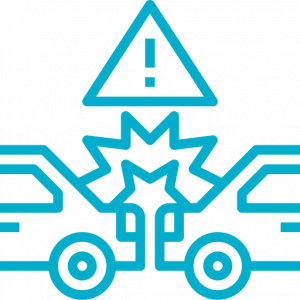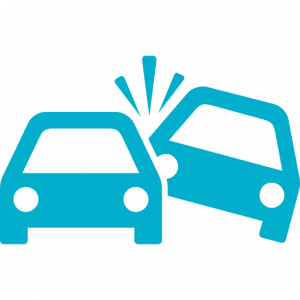
There are numerous ways to reduce the odds of you being in an automobile accident. Below is a list of tips to help avoid an accident. Obviously, this is not a complete list and there is no guarantee that an accident will be avoided but again if you follow this guide it could reduce your odds and you will not be part of the Texas department of transportation data of one accident every 57 secs per day. However, if you have a car accident please go to https://myaccident.org for assistance with identifying local resources like accident attorneys, repair shop, tow companies etc.
Safe Driving Tips:
- Defensive driving: Simply stated this is increasing your awareness of other drivers.
- Avoid erratic drivers: Keep a safe distance from the erratic automobile. Take note if a car is swerving or veering into other lanes as this behavior indicates the driver is either impaired or not paying attention.
- Hand position on the steering wheel: It is best to keep your hands at 9’ o’clock and 3’ o’clock. Make sure your hands and arms are in a comfortable position where they will not fatigue easily but are ready to make any quick maneuvers as necessary.
- Keep your eyes on the road ahead and also look beyond the car in front of you frequently. This will help you avoid surprises if the car in front of you changes lanes and there is a possible obstruction or slow down.
- Mirrors: Make sure your mirrors are adjusted to your height and viewing level. You may still have blind spots but this adjustment o your mirrors can help minimize those blind spots.
- Always remember to turn and look before changing lanes.
- Only use the left lane to pass: When there is more than one lane in the direction you are driving it is best to avoid the left lane. Some people refer to the left lane as “fast lane” while driving.
- In a multilane highway, most accidents occur in the left lane. Also, the police give more tickets to drivers in the “fast lane” as compared to other lanes.
Know your car: Cars handle differently and some are more responsive than others. For example, larger, heavier cars may require you to brake earlier than smaller, lighter cars. The steering of each car handles differently. This may especially be true when turning or going on a cloverleaf. Also, the acceleration rate for each car differs as well.
Keep your car in good condition: Make sure your headlights, taillights, and blinkers are working at all times. It is also very important to check your tires regularly for tire pressure as well as wear and tear. Older tires cause the car to be slippery in wet or icy conditions.
Avoid late night driving: If you need to travel at night especially after midnight you will need to be even more cautious. This is the time where people often leave bars or events impaired. Also, some drivers may not be as alert due to fatigue and drowsiness.

Avoid driving in bad weather: Rain and or snow, for example, can cause havoc on the roads. Be extra careful driving in these conditions or avoid driving in these conditions if at all possible.
Never drive impaired: Being under the influence of any kind and being behind the wheel is prohibited at all times. You are not only putting your life in danger you are putting the lives of others in danger as well.
Cell phones and driving: Each state has its own law regarding cell phones and driving. Some states only allow hands-free cellphones while others have no restrictions whatsoever. Statistics show that cell phone use and driving are now causing more fatalities while driving as compared to driving under the influence.
Distracted driving also puts you at risk of an accident. Avoid attending to children, pets, other passengers, makeup, phone and anything that will take your attention away from driving safely. Avoiding these distractions will allow you to have your full attention on the road ahead.
Driving with your flashers on: In most states, it is illegal to drive with your flashers turned on. Your flashers should only be turned on when your vehicle is stopped or disabled on the roadway or side of the road. If you feel you are driving in poor weather and you need your flashers on then it is probably not the safest driving conditions anyway.
Buckle up: Every time all the time and be a good example to passengers and children as you make sure they are properly buckled up too. Children under the age of 13 should ride in the back seat. Make sure that car seat, booster seat or seat belt is appropriate for age and size. Share the road: In warmer weather bicyclists, motorcycles and pedestrians will be more prevalent. Stay alert and make room for them.
For more information on driving safety refer to https://www.nhtsa.gov/road-safety.
For information on local resources contact: https://myaccident.org